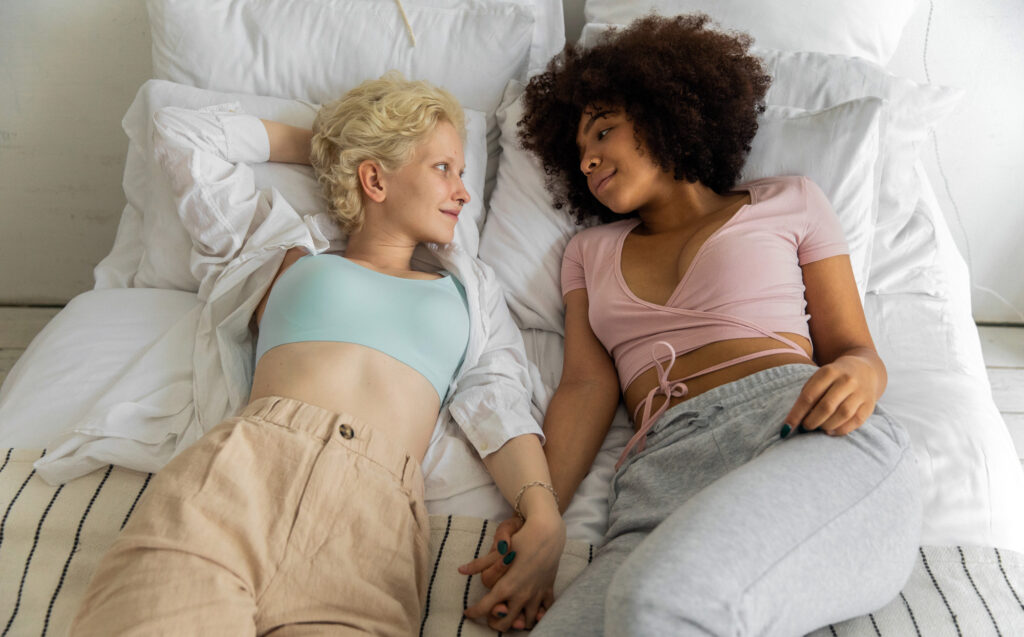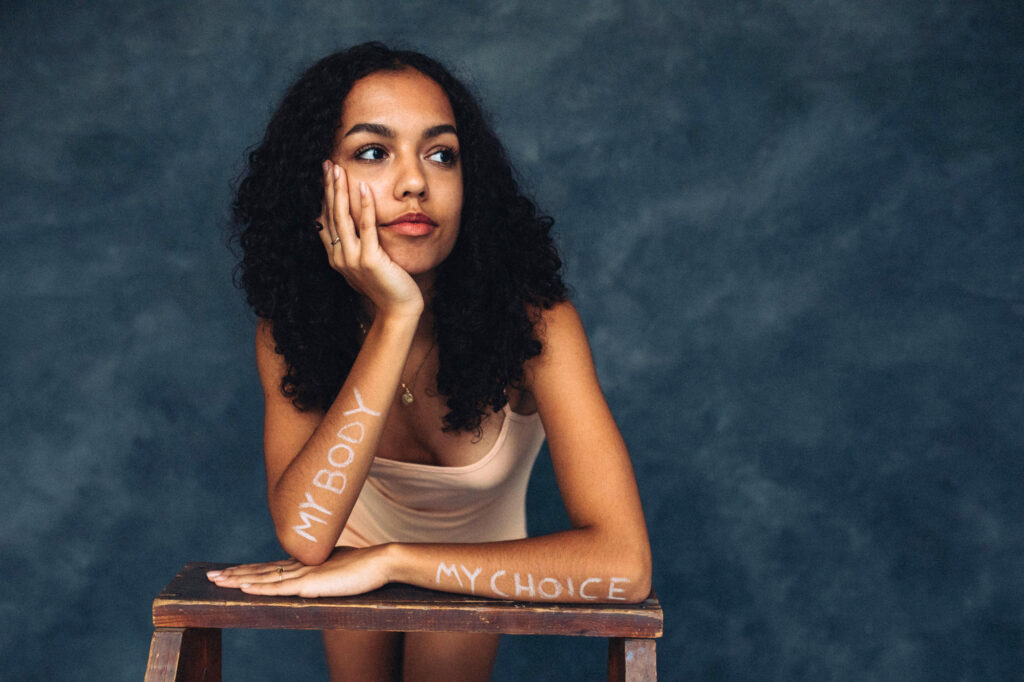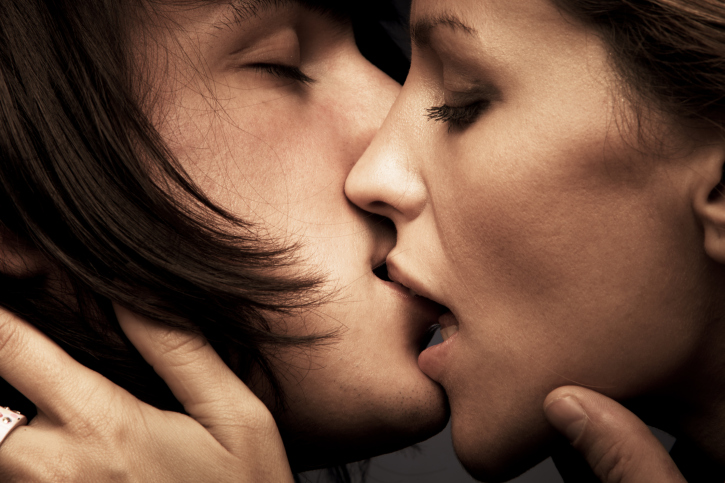How to Lose Your Virginity: Advice for Your First Time
As a sex and relationship coach and expert on the phenomenon of virginity, I have helped many inexperienced clients clarify how, why, and when they want to lose their virginity.
We are currently in a time when the concept of virginity is on the rise and there is a trend of people experiencing sex for the first time far later than previous generations. For many of them, the idea of it feels like a major step in their sexual journey and self-discovery. But what does it really mean to lose your virginity?
In some ways, the idea itself is outdated, and it is important to come up with your own definition of what it really means to make the transition from innocence to being a seasoned lover. One of my clients, for example, had never even kissed a girl. He had to start from scratch to get connected to his sexual energy, and ultimately to feel that he could connect to someone else.
The experience of losing one’s virginity can vary greatly from person to person, shaped by cultural norms, personal beliefs, and individual circumstances. For some, it’s a deeply emotional and intimate act shared with a trusted partner, while for others, it may be a more casual encounter, driven by curiosity or societal pressures.
What is Virginity Anyway?
Historically, losing your virginity has been defined as the first time you engage in sexual intercourse. This historical definition, involving vaginal penetration by a penis, doesn’t cover all sexual experiences.
It’s important to remember that virginity is a social construct, with diverse interpretations. For example, losing your virginity may take on a completely different meaning and include different sexual acts if you are lesbian, gay, bi, queer, or transgender. It could mean giving or receiving oral sex, or experiencing anal penetration.
In some cultures, virginity is highly valued and seen as a symbol of purity and virtue, which is often tied to religious or moral beliefs. More liberal societies focus on individual autonomy and sexual agency, with less importance placed on virginity as a marker of morality or worth.
Regardless of cultural context however, the idea of losing your virginity can evoke excitement, anxiety, fear, and pleasure. It may feel like a vulnerable moment that shapes all your perceptions of sex and relationships, and is often seen as a rite of passage.
It’s crucial to approach this topic with sensitivity, recognizing that everyone’s experience is unique and valid. There’s no one-size-fits-all approach, and, if you are thinking about virginity and what it means to you, you should feel empowered to make informed choices about your body and sexuality, free from judgment or pressure.

What’s the Right Age to Lose Your Virginity?
Determining the ideal age to lose your virginity is a personal choice. It hinges on various factors – such as your readiness, emotional maturity, and cultural upbringing.
While some people might feel ready in their teens, others may prefer to wait until they’re older. There’s no universal “right” age. It’s more about being mentally and emotionally prepared for the experience. Rushing into it before you’re ready can lead to regret or emotional turmoil. It’s crucial to prioritize consent, safety, and understanding your own boundaries.
Ultimately, the decision is yours and should be made autonomously – without succumbing to societal pressures or expectations. It’s about respecting yourself and your body, and waiting until you feel genuinely comfortable and prepared to take that step.
What Should You Expect For Your First Time? Will You Orgasm?
Your first time is likely a mix of excitement, nerves, and uncertainty. If you are a woman, you might wonder, “Will it hurt?” or “Will I orgasm?”. If you are a man, you might wonder “Will I get hard” or “Will I come too quickly?”
Expect some awkward moments, maybe a bit of fumbling, but also moments of intimacy and connection. Take it slow, focus on pleasure, and don’t rush. It’s normal to feel a range of emotions afterward, from elation to vulnerability.
Also – orgasms aren’t guaranteed during a first sexual encounter. It depends on arousal level, comfort, and the entirety of the experience. Some people do orgasm, while others might not. Either way is totally okay! Focus on enjoying the experience and exploring what feels good for you and your partner.
For the entire experience, communication is key. Don’t hesitate to talk openly about your desires, boundaries, and any concerns you may have. Remember, it’s not just about reaching the finish line; it’s about the journey and the connection you share with your partner. So relax, and most importantly, have fun exploring this new chapter of your sexual journey!

Tips For the First Time
Preventing pregnancy and STDs during your first sexual encounter is crucial. Using contraception like condoms or birth control pills can significantly reduce the risk of unwanted pregnancy. Additionally, condoms can also help prevent the transmission of sexually transmitted diseases (STDs), further safeguarding your health. If you’re worried about having been exposed, get tested.
It’s essential to discuss contraceptives with your partner beforehand and ensure you’re both on the same page. Always prioritize your safety and protection, no matter what.
Foreplay: Take your time exploring each other’s bodies and desires. Listen to your partner’s cues. Focus on building anticipation and arousal before moving on to penetration. Don’t rush — savor the moment and enjoy the intimacy. Above all, prioritize pleasure and mutual enjoyment, and don’t be afraid to try new things. Foreplay sets the stage for a fulfilling and enjoyable experience.
Respect & Consent: Getting (sober) consent from your partner is absolutely essential for a positive sexual experience. Always ask – and then respect your partner’s boundaries and desires, no matter the answer. Remember also that consent can be withdrawn at any time, so continuously check in with your partner.
Above all, trust your instincts and only proceed if you feel genuinely ready. It’s a learning experience, so be patient with yourself and embrace the journey of exploration and self-discovery.
Hymen Breakage & Other Physical Signs After Your First Time
After your first sexual experience you might notice some physical changes, like hymen breakage or vaginal bleeding.
The hymen, a thin membrane at the vaginal opening, can tear during penetration – though it doesn’t always happen. Some people might not even have a visible hymen due to various factors like physical activity or genetics. If it does tear, it can cause minor bleeding or discomfort, but it’s usually nothing to worry about.
Other signs might include soreness or tenderness of your vulva or vagina, or penis. This is normal and should subside within a few days. Additionally, you might experience increased vaginal lubrication, swelling of the genital tissues, or changes in nipple sensitivity. These changes are temporary and typically resolve on their own.
If you end up with any kind of itching or bumps or discharge, you may have a yeast infection, bacterial vaginosis, or an STD. Some men also get yeast infections, especially if they are uncircumcised. You can protect against a lot of this by using condoms.
It’s essential to listen to your body, communicate with your partner, and prioritize your comfort, safety, and well-being. If you experience severe pain, prolonged bleeding, or other concerning symptoms, it’s a good idea to seek medical advice.
Everyone’s body reacts differently, so don’t compare your experience to others. Take care of yourself, and give yourself time to adjust to these physical changes.

What to Do if You’re an Older Virgin
There are many reasons why people might stay a virgin later than average. You may have waited for religious reasons, or wanting to complete some level of education before bringing in relationships. Nervousness about asking people out or being fearful of rejection, fear that it will be painful or that you will have performance issues can also be factors. Plus, body image issues may make you feel unattractive or inadequate – and the list goes on.
If you are an older-than-average virgin, you may have started to feel self-conscious about it. You may worry that your friends will judge you, or that potential partners may reject you if they find out that you are a virgin. Maybe you won’t meet your partner’s sexual expectations because you are new – and they have had more experience. Or you are concerned that you don’t have the technical knowledge you need to satisfy your partner.
There are a few things you can do:
- To Tell or Not to Tell? First of all, you get to decide whether or not you want to disclose the fact that you are a virgin. It is totally up to you. It can sometimes make the experience better if you do disclose because your partner might take more care and is more understanding if you are not sure exactly what to do. At the same time, while someone might be able to tell that you don’t have a lot of experience, they probably won’t know that you have never had sex. So, if you don’t want to tell other people, it is your choice.
- Read a book or several books and articles about sex. There are wonderful books out there full of sexual advice that explain everything from people’s core desires to sexual technique.
- Watch videos – while reading can be helpful, it is also wonderful to check out some adult education videos that are focused on pleasurable techniques. These can be much better than porn because they will be focused on how to actually give and receive pleasure.
How a Sex or Dating Coach Can Help
While it is great to read books and watch videos, if you do feel a bit behind, by far the best way to get better is through practice!
Drawing from my own experience in my practice, I remember one client I worked with who had some sexual experience, but never actually had intercourse. Self-judgment abounded with him. But we built on his base knowledge, and worked on his confidence so he could level up. When he finally did have intercourse with a partner at age 38, she didn’t believe he was a virgin – he showed so much confidence.
You cannot practice actual intercourse with a dating coach or sex coach, but you can try out all kinds of seduction and touch techniques with your experiential coach. They can also support you with experiences to spark your passion, and even rehearse moving into different positions with clothes on.
What To Do Next:
- Book a session with a Certified Dating Coach
- Read the books Making Love Real and Coming Together
- Take one of our Sex & Relationship Classes like the Dating Class for Women or the Dating Class for Men







